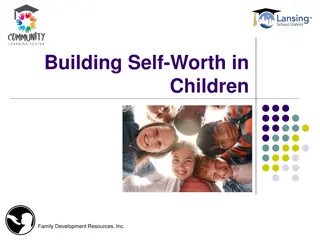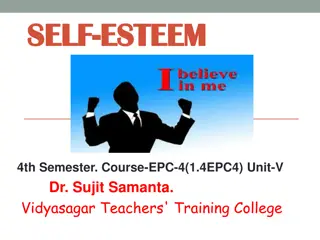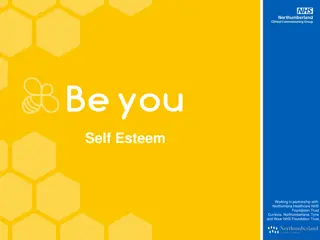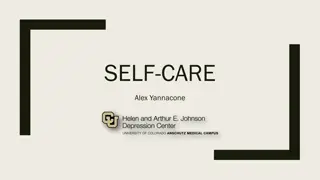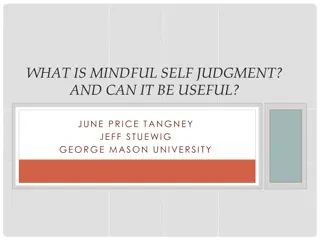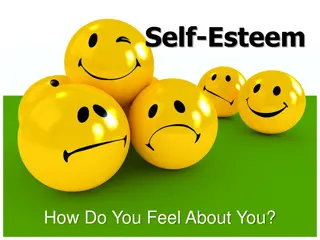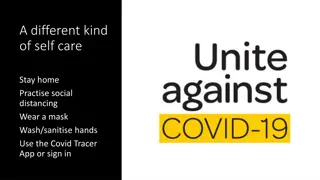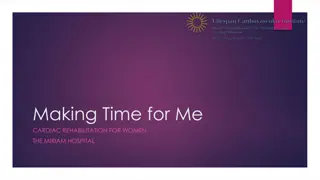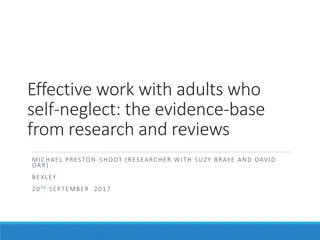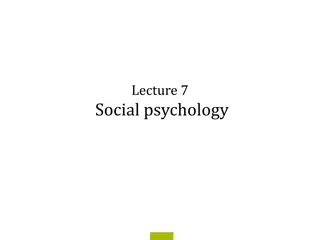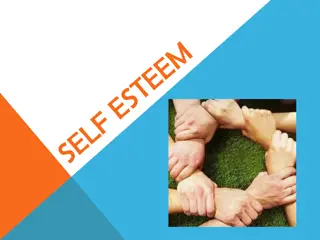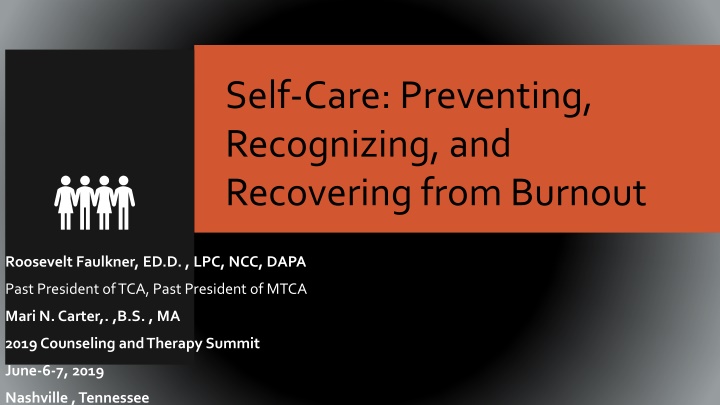
Preventing and Recovering from Burnout using Self-Care Strategies
Explore effective ways to prevent, recognize, and recover from burnout through self-care practices. Learn about codes of ethics, signs of burnout, impacting factors, and paradoxes related to self-care. Discover the importance of self-care in maintaining mental health and well-being.
Download Presentation

Please find below an Image/Link to download the presentation.
The content on the website is provided AS IS for your information and personal use only. It may not be sold, licensed, or shared on other websites without obtaining consent from the author. If you encounter any issues during the download, it is possible that the publisher has removed the file from their server.
You are allowed to download the files provided on this website for personal or commercial use, subject to the condition that they are used lawfully. All files are the property of their respective owners.
The content on the website is provided AS IS for your information and personal use only. It may not be sold, licensed, or shared on other websites without obtaining consent from the author.
E N D
Presentation Transcript
Self-Care: Preventing, Recognizing, and Recovering from Burnout Roosevelt Faulkner, ED.D. , LPC, NCC, DAPA Past President of TCA, Past President of MTCA Mari N. Carter,. ,B.S. , MA 2019 Counseling and Therapy Summit June-6-7, 2019 Nashville , Tennessee
Agenda Self-Care Codes of Ethnics Recognizing Signs of Burnout Factors that Lead Burnout Self-Care Paradox Preventions Impact on MHPC s Summary Self-Care
Objectives Definitions of self-care Codes of Ethics Recognizing Signs of Burnout Factors That Lead to Burnout Self- Care Paradox Impact on MHPC s Preventions Self-Care
Definitions of Self-Care Self- Care is a collection of positive actions that can promote wellness and effective coping ( Wise & Barnett, 2016). Self- Care is one s ability to take care of the activities of daily living (ADL). Self-Care Self- Care is the activities and practices that are engaged in on a regular basis to maintain and enhance a person health and well-being (ACA, 2017).
Self Care Research O Halloran, Theresa & Linton, Jeremy (2000), stated that wellness is a concept that counselors often focus on more readily for clients than ourselves . Thomas, Denis A. & Morris, Melanie H. (2017),stated that most counselors have knowledge about self-care and convey the importance to others, may not be translated into self-care action . Self- Care (Moffatt, Gregory, Counseling Today, August, 2018)
Codes of Ethics Psychologist refrain from initiating any activity , when they know or should know that there personal problems will prevent them performing their work (APA, 2016) Self- Care Recognize that their effectiveness is dependent on their own mental and physical health or any mental ,emotional, or physical health problem, compromise sound judgment ..seek professional assistance to determine whether to limit, suspend or terminate services to their clients (AMHCA, 2015). Counselor monitor themselves for signs of impairment .refrain from offering or providing professional services when impaired (ACA, 2014)
Recognizing Signs of Burnout Self- Care
Emotional Exhaustion
Decreased sense of accomplishment
Recognizing Signs of Burnout (cont.) A decrease level of involvement with friends and family. Self-Care Failure to engage in social activities. Instances of tardiness or absenteeism.
Factors that Lead to Burnout Loss of control. Unrealistic caseload. Lack of appropriate rewards. Loss of a sense of positive connection with others. Conflict between values. Self-Care (ACP Hospitalist, June ,2018)
Factors That Lead to Burnout (Cont.) Inadequate supervision Poor peer support Self-Care Heavy caseload (Ohrt & Sharp, Counseling Today, 2018)
Self-Care Paradox Occurs when we emphasize the importance of self-care to our clients and we are trained to take care of ourselves. Our self- confidence allows us to believe that crisis wouldn t knock at our door. Such as divorce, death of a loved one, loss of a job, and chronic mental health issues. Self-Care (Moffatt, G., 2018)
Impact on MHPCs Depression/Suicide Substance abuse/ addiction Decreased productivity Loss of License Personal Life Compassion fatigue (One Beacon Insurance Group, 2015) Self -Care
Compassion Fatigue is defined as: Emotional strain of exposure to working with individuals who've suffered/suffering from effects of traumatic events Self-Care Different from burnout - emotional exhaustion/withdrawal resting from increased workload and/or institutional stress, not trauma related (American Institute of Stress, www.stress.org)
Symptoms of Compassion Fatigue: Sleep disturbance Anger/irritability Isolation Behavior/judgement impairment Depression Loss of self worth Loss of hope Emotional intensity increases
Self-Care: Preventions Mindfulness exercises Physical exercise Getting into nature/outdoors Peer support group
Preventions (cont.) Engage in things that brings joy and relieve stress. Self - Care Take time out of the day and not engage in helping related work. Explore or engage in a hobby.
Preventions (cont.) Take time for self. Avoid taking on extra clients. Self-Care Reflect on your personal well-being. Maintain supervision regularly.
Summary Self-Care is essential for the well-being of the professional mental health counselors when caring for others. Mental Health Counselors can teach self-care to their clients, but mental health counselors should practice or apply self-care to themselves.
References Andreula, T.J.,( April, 2012), Counselor Burnout: A Recognizable and Preventable Condition Implication for Mental Health Professional , Clinically Psyched Beating Burnout (June, 2018), ACP Hospitalist Corey, G., Muratori, M., Austin, J. T. ,& Austin, J.A., (2018),Counselor Self- Care, American Counseling Association Self-Care
References (cont.) Melchoir, S., & Gomez Beane, D., (June 2018), Self-Care for Activist Counselor , Volume 60, Number 12 Counseling Today Meyers, L., (February, 2012) Stumbling Blocks to Counselor Self-Care , Counseling Today, Moffatt, G. K., (August, 2018 ), The Hurting Counselor ,, Volume 61, Number 2, Counseling Today, Professional Roundup: Burnout In Mental Health Providers , Practice Update, (January, 2018) Self-Care Application: Mindfulness Exercises www.https://youtube/zsCVqFr6j1g Self-Care
Recognizing Signs of Burnout Emotional exhaustion, feeling completely drained both mentally and physical. Depersonalization, start viewing the client as a case and not as a person. A decreased sense of accomplishments, feels that whatever is done won t make a difference Vicarious Traumatization or compassion fatigue, occurs when one is exposed to the client s trauma. Self-Care

